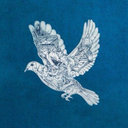Phosphodiesterase 4D polymorphisms and the risk of cerebral infarction in a biracial population: the Stroke Prevention in Young Women Study.
Mots clés
Abstrait
An association between polymorphisms within the phosphodiesterase 4D gene (PDE4D) and ischemic stroke was initially reported in older adults from Iceland and has been supported by studies in several other primarily elderly populations. In the present study, we examined the association between PDE4D polymorphisms and early-onset ischemic stroke in a biracial female population. A systematic search for polymorphisms in the highly evolutionary conserved regions of PDE4D was performed on 48 African-American and 48 Caucasian participants. Novel and known polymorphisms were then prioritized and genotyped in the entire study population of 224 cases of first ischemic stroke among women aged 15-49 and 211 age- and ethnicity-balanced control subjects. Forty novel and previously reported polymorphisms with a minor allele frequency greater than 0.05 were determined, with 23 polymorphisms selected for analysis in the full case-control sample. Single nucleotide polymorphism (SNP), linkage disequilibrium and haplotype analyses were performed. SNP rs918592, found in an intron near the 5' end of the gene, was significantly associated with stroke (age- and race-adjusted odds ratio (OR=1.5, P=0.007), with four other SNPs showing significant, albeit less strong, associations. The magnitude of association was similar across African-Americans and Caucasians and across multiple stroke subtypes (e.g. atherosclerotic, lacunar and non-lacunar of undetermined etiology). The association of rs918592 with stroke was confined exclusively to current smokers (OR=3.2, P=0.00014), with no association observed among never-smokers (OR=0.9, P=0.75) or former smokers (OR=1.2, P=0.66), demonstrating a gene-environment interaction (P=0.03). A strong dose-response relationship was also seen among current smokers. No specific risk haplotypes were identified.


